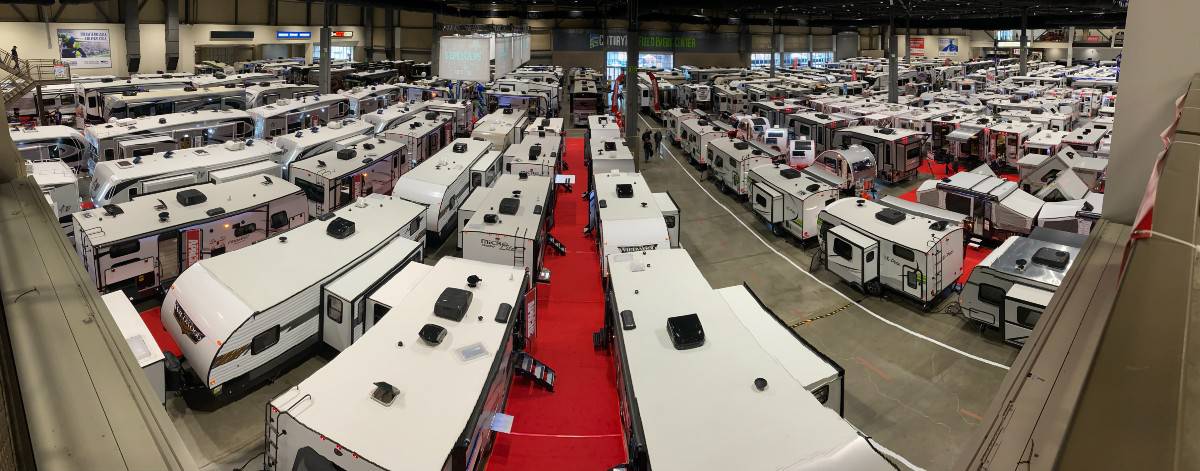So the time has come to part with your old RV. But before you do, it pays to learn about the scariest types of RV selling and buying scams people fall victim to every day.
WARNING: RV Selling Online is Risky
Maybe you want to purchase a different model, moving on from the RV lifestyle, or are selling it on behalf of a loved one who passed away. Whatever the reason may be, you’ve got a camper and you’re ready to let it move on to the next phase. If you opt out of an RV dealership trade-in, you’ll have to keep an eye out for RV selling and buying scams!
RVs are expensive vehicles, and many scammers see them as an easy way to make money. When large amounts of money change hands between private sellers, there are lots of opportunities for things to go wrong. There may be people who are genuinely interested in buying your RV, but there will also be others who look for a way to steal your money (and maybe the vehicle too!)
Common RV Buying Scams
In order to avoid these pitfalls, you’ll need to be aware of some common scam tactics of fake RV buyers. Although the specific approaches may vary, there are some clear warning signs you can watch out for.
In general you should be careful not to rush into any decisions. Only place advertisements to sell your RV when you’re good and ready.
With that in mind, let’s explore some common RV selling and buying scams and how you can avoid them.
Most scammers are pretty easy to spot. They say things ” I’m interested in your item ” without calling it by name. Also they start talking about paying for it sight unseen. Some of these guys are getting better but gut instinct will usually be your best voice. A legitimate buyer will have questions pertaining to your exact unit.
@GCSuper, iRV2 Forums, “Purchase Scams.“
Unsecured websites/forms of payment
One way that fake RV buyers can get you is by using an unsecured website to make payments. Be wary if they try to convince you to use a money transfer app or website that you’ve never head of. It could be legitimate, or it could be a fake website that they created to steal your money and information.
- If you choose to visit the website that they recommend, look for a small lock icon in the top left corner.
- If the “Lock” icon isn’t there, it means that your connection is unprotected. Scammers could see your payment information and use it to drain your bank account.
- Stick to secure, traceable payment methods.
Offers from third party sellers
Selling an RV on consignment, or not trading it in to an RV dealer can be a real hassle. Online RV selling and buying is a bigger one.
For starters, you have to sort through lots of potential buyers to separate the real ones from the fake RV buyers. It can also be a long a frustrating process with lots of haggling, changes, and deals that fall through.
If this is the case for you, you might be vulnerable to scammers who pose as third-party salespeople. They offer to sell your RV for you and take a small share of the profits. It’s an easy way to get the problem off your hands!
But if you choose the wrong person to handle this deal, they might steal your RV and vanish. Or in other cases, the seller fees might be higher than they originally stated.
If you need to sell and RV and don’t want to deal with the sale or take it to a dealership, stick with a legitimate, top-rated RV consignment company like National Vehicle.
- Call the brokers yourself, to ensure you are working with the real company, not an impersonator.
- Third party agents who directly contact private party sellers via places like Facebook Messenger can mean trouble!
Bouncing a personal check
This is one of the oldest RV buying scams in the book! A fake RV buyer says that they want to buy your RV and they send you a check to prove it. You give them the RV and take the check to the bank.
But once they have happily driven off in the new vehicle, you discover that they gave you a bad check. So now you’re left with no RV and no money from the sale. Paper checks are less common nowadays, but this can still happen.
Giving a Fake Cashier’s Check
If someone offers to give you a personal check in exchange for the vehicle, let them know you prefer cash or wire transfer. A cashier’s check is a last resort, but it must be handled with care.
- Always get the payment before they drive away but do not surrender your RV.
- Next, deposit the check in your bank account and give it a couple days to see if it goes through.
- If everything is clear, you can move forward with the sale and hand over the keys.
A scammer won’t want to give you enough time to test the check, so be wary of anyone who is unwilling to wait for a few days.
Years ago that plan was proposed to me on a motorcycle I was selling. I told them that would be fine, except that I was keeping the bike and title till the cashiers check cleared and my bank was happy. For some reason I didn’t hear back from them.
@Crasher, iRV2 Forums “Purchase Scams.“
Phishing RV buying scams
You might not lose your RV with this type of scam, but you could lose your identity (and a lot of money). Phishing scams are designed to steal your personal information. Private RV sellers are a promising target because they often need to share contact information and their location.
If a phisher gets a hold of your email, phone number, or home address, they can send false messages about all kinds of things.
- For instance, they might tell you that there’s a warrant out for your arrest and you need to comply with their demands.
- Or they could send you to a false website where they can collect more personal details about your personal financial information, like your bank information or credit card numbers.
I almost fell for one of these scams once! I was selling something small online and a seller sent me emails from a false Venmo account. By looking closer at the mailing address, I could tell it wasn’t from the real Venmo service. Small typos and other flaws became apparent as well.

Carefully check every email and direct message during the RV selling process.
- If someone sends you an email that appears to be coming from a legitimate source like Facebook or Venmo, but the sender’s email address is from Google or Yahoo, or doesn’t match up to the company website domain and business profile, they could be a fake RV buyer.
- Don’t be afraid to do an online search for proof that the sender’s phone number matches who they say they are. Do not call the phone number, research online.
- If you receive a direct message from a person who to send you a code to “prove you are human”, run! It’s a Google Voice Verification Scam.
If you still can’t tell if it’s a legitimate offer to buy your RV, call the official customer service department of the company in which the buyer claims they are representing. Ask the representative if the company recently sent you a message. That’s what I did and it helped me avoid a huge mess!
Pressure to sell immediately
Urgency can be a major red flag that you’re dealing with a fake RV buyer scammer. Be wary of anyone who is pressuring you to act now or is not giving you time to think. Scammers are good at triggering fear, so they might send text messages or email warning that you have to accept their offer now before it’s gone forever.
This type of over-eager behavior is meant to lull you into a false sense of security. If they’re so excited to buy, they must be legitimate, right?
Don’t let anyone rush you though! Selling an RV is a delicate process and you need to make sure that you exercise extreme caution to get all the details in order. Use common sense to avoid online RV scams. Deals that seem too good to be true often are. By the time these folks drive off in the RV, they’re off to get their next victim. By then, it’s too late to do anything.
Top 3 Best Practices for Selling an RV
Now that you know about some of the common RV buying scams, let’s talk about how you can protect yourself while selling a used RV to get top dollar for it. Nobody can completely avoid fake RV buyer scammers because they’re on nearly every platform! In most cases the Better Business Bureau (BBB) won’t know who they are or what kinds of frauds they have tried. But there are some things you can do to spot them from a distance and protect yourself.
In addition to the advice above, here are some best practices to follow next time you’re ready to sell your vehicle.
1. Transfer the title and money in person
One thing you can do is handle the money transaction in a secure and official environment. Many people like to close the sale at the bank by doing the wire transfer or cash exchange in person, with both parties. Some go to the DMV for the final payment.
- Ask family members with RV selling experience to go with you. Choosing a public location scenario ensures that you don’t need to give your home address to a stranger. Plus, a scammer won’t usually be comfortable doing business in such a public venue.
Additionally, try to avoid long-distance payment methods like mailed checks and digital money transfers over Paypal. There are too many chances for error here.
2. Don’t reveal personal details or use urgent wording
The more a scammer knows about you, the easier you are to fool. To avoid getting caught in RV selling and buying scams, be very careful to keep things professional and impersonal.
- A person with bad intentions might try to get personal information that they could use to steal your identity. Unless you know them in real life, don’t have in-depth chats about your circumstances!
You also need to be careful about the way you speak during the selling process. Don’t use urgent or desperate language like, “Must sell ASAP,” or “Any offer is considered.” This tells everyone that you’re eager to bargain and sell immediately. It screams that you won’t look too closely at incoming offers.
3. Trust your instincts
Finally, you need to listen to your intuition. A fake RV buyer’s deal might sound appealing up front, but there’s usually something that’s off about their behavior. Maybe they’re acting like an over-eager car salesman. Or maybe they have unusual requests, their messages are poorly written and hard to understand, or maybe they won’t take no for an answer.
Whatever the case may be, trust your gut and don’t be another victim of RV selling and buying scams.
If something feels strange, drop communication and move on to other shoppers with offers. It’s not worth the risk!
Related Articles:
- RV Buying Dos and Don’ts for Newbies
- Rent Your RV as a Side Hustle
- Common Scams to Look Out For When Buying or Selling an RV




